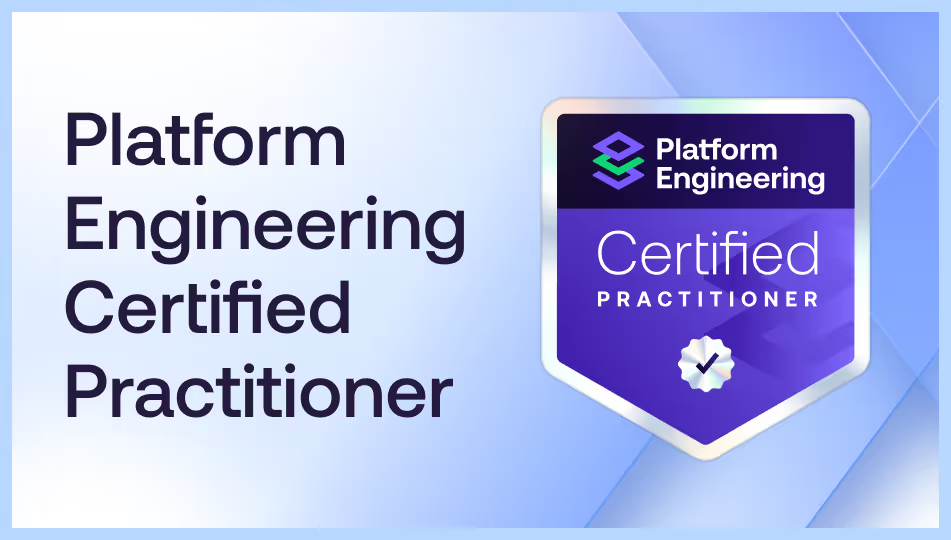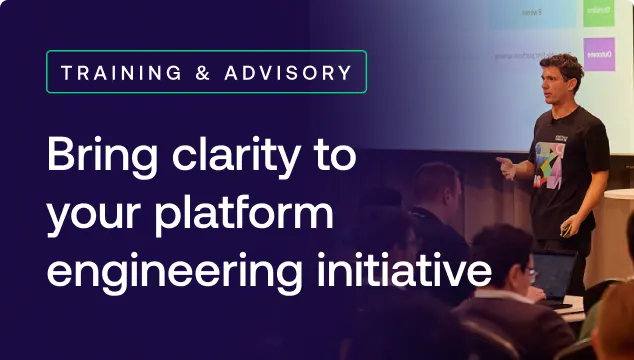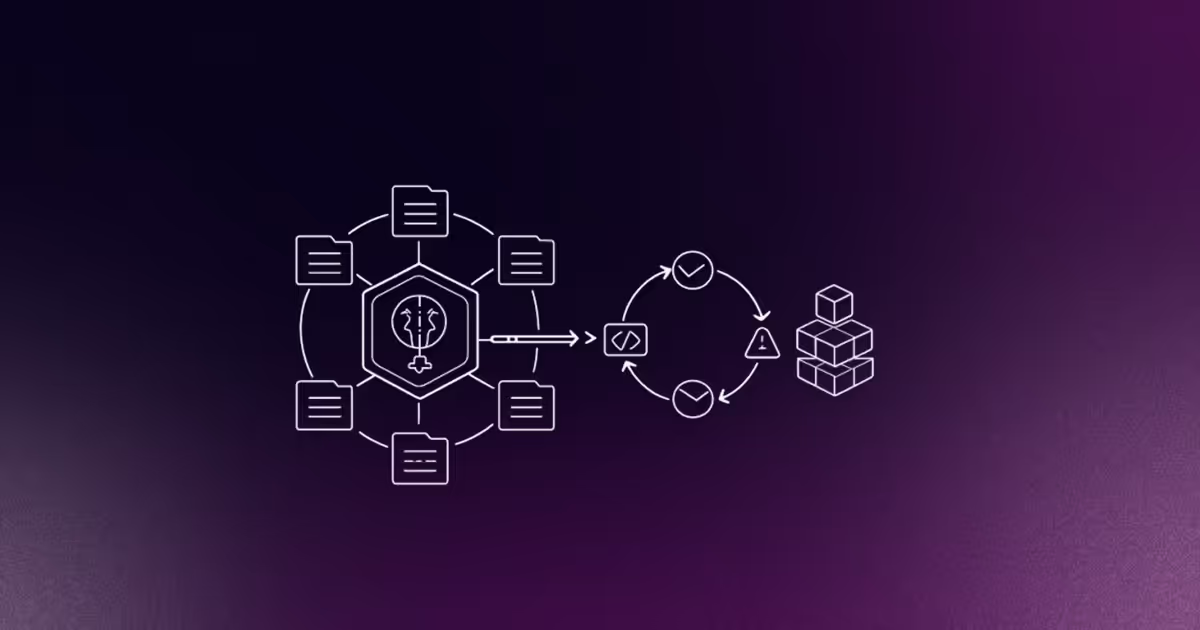You might think the title of this article is too strong a statement. After all, platform orchestration was a niche topic within the broader trend of platform engineering until just a year ago. But things really changed in 2023, with all major players pushing their respective offerings (or getting ready to). 2024 is set to be the year Platform Orchestrators go mainstream and take over the platform engineering and cloud-native markets. Let me tell you how.
Platform orchestration: from niche to necessity
Platform orchestration started back in 2022 with Humanitec pioneering the idea of engineering organizations using a Platform Orchestrator as the centerpiece of their Internal Developer Platforms (IDPs).
A Platform Orchestrator is the core configuration engine of an IDP, allowing platform teams to set baseline configs and design clear golden paths for developers. This enables developers to consume infrastructure in a standardized and secure way.
Developers can describe the resources needed by their workloads in an abstract way using a workload specification (like the open source Score standard). The Platform Orchestrator reads the request, matches it to the rules (Resource Definitions) set by the platform team, creates fresh app and infra config files, and deploys. This is the Read, Match, Create, Deploy, or RMCD pattern that’s typical of enterprise-level Platform Orchestrators. Below is a useful graphic by Humanitec to explain this.
.avif)
In 2023, more and more people started picking up on the beauty of this architectural design and understanding its implications for platform engineering in the enterprise. Platform Orchestrators not only remove friction between devs and Ops, they also help organizations turn their disjointed cloud native toolchains into enterprise-grade IDPs.
Some of the senior architects at McKinsey&Co were amongst the first to realize this. At PlatformCon23 they showed how a Platform Orchestrator is the key centerpiece of their reference architectures for enterprise-grade IDPs.

Shortly after in September 2023, Thoughtworks published Tech Radar Vol 29 which mentioned platform orchestration for the first time, including Humanitec and ra as examples.
With the widespread adoption of platform engineering, we're seeing a new generation of tools that go beyond the traditional platform-as-a-service (PaaS) model and offer published contracts between developers and platform teams. The contract might involve provisioning cloud environments, databases, monitoring, authentication, and more in a different environment. These tools enforce organizational standards while granting developers self-service access to variations through configuration.
Source: Thoughtworks, Technology Radar Vol 29
Two months later Atulpriya Sharna gave an amazing talk (Workload specifications - your best friends in platform engineering) at the CNCF platform engineering chapter meeting at KubeCon Chicago. He discussed abstraction layers like the OSS workload specification Score, which is the ideal companion for a Platform Orchestrator.

This shows not only are vendors and analysts understanding the benefits of platform orchestration, but that the broader community is getting behind it too.
Even more exciting, two weeks before KubeCon Microsoft open-sourced Radius. And the similarity between the diagrams above and the one on their docs is quite striking.

That said, I’m not 100% sure I’d call Radius a Platform Orchestrator, certainly not an enterprise-ready one. It seems developers still need to specify resources for each environment. This removes the abstraction and dynamic configuration bit that is key to a Platform Orchestrator. Yet, Microsoft documentation now also references Platform Orchestrators.

On the same page, Radius is mentioned as an infrastructure provider. Maybe someone in the community already has more experience with Radius and can help clarify which category it best fits in?
Anyway, I heard that many people at both Google Cloud and AWS were quite surprised that Microsoft pulled this move. They announced Radius would be donated to the CNCF and be cloud vendor-neutral. This is very generous, but certainly not without an ulterior motive that is likely to annoy the other hyperscalers enormously (by stealing their customers).
Platform orchestration in 2024: cloud wars
As the concept of Platform Orchestrators keeps catching on, it will soon no longer matter to developers which hyperscaler infrastructure and resources they’re using to run their workloads. Perhaps choosing to be multicloud is intentional, or maybe it’s because of historical tech stack diversity (mergers and acquisitions, or different team preferences). Whatever the reason, Platform Orchestrators provide engineering organizations with the flexibility needed to navigate any multicloud landscape.
Organizations can seamlessly deploy workloads across different cloud providers, breaking free from vendor lock-in and maximizing their cloud investments. This begs the question, what will the hyperscalers do about it? Will these giants enter the Platform Orchestrator field to increase their market share by providing an easy bridge from competitors’ ecosystems to their own? Will such bridges be two-way, allowing easy migration between clouds, or one-way, subtly encouraging organizations to migrate away into their own ecosystem?
As Platform Orchestrators become integral to the way companies build and deploy to their cloud native setups, we find ourselves on the cusp of a new phase in the cloud wars. And all of this will end up benefitting the end users. Engineering organizations are no longer tethered to a single cloud provider and the hyperscalers must now compete based on the merit of their services, developer experience, and ability to cater to mulitcloud demands.
The cloud wars are taking an exciting turn, with Platform Orchestrators as the catalysts for change, so lean back and enjoy it. And get ready — 2024 will be the year of the Platform Orchestrator!












